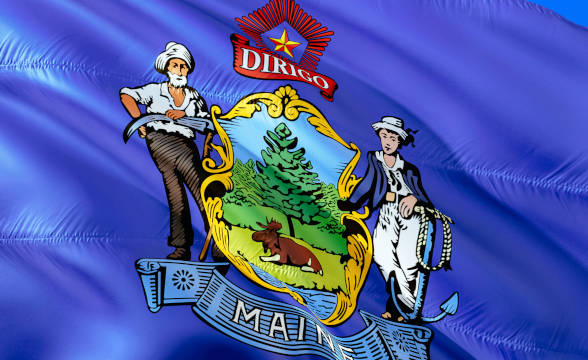Gov. Janet Mills has thrown her support behind sports gambling in the state of Maine after signing a bill that enables Native American tribes in the state to launch mobile sports betting. The bill that Maine is signing has paved the way for building a vibrant sports gambling ecosystem that will help the tribes and commercial partners establish a strong foothold in the state.
Maine Becomes First State in 2022 to Legalize Sports Gambling
Still, it’s an important win as Maine becomes the latest state to pass laws that will allow it to raise taxes from sports gambling that is happening anyway, only this time it will happen under the vigilant eye of the government. In a statement, Mills explained her motivation behind the move:
This law provides meaningful economic opportunities for the Wabanaki Nations. It incentivizes investment in tribal communities, and it formalizes a collaboration process on policy that sets the foundation for a stronger relationship in the future.
Maine Gov. Janet Mills
Sen. Bill Diamond, who has been an outspoken proponent of legalizing sports gambling, has said that it was high time for this to happen. The fact that Maine has gone with a mobile sports betting solution is also important as it reflects the maturity of understanding the issue, with over 85% of the total market online.
Tribal and Commercial Operators Vying for Share
The tribes were partly to blame for a few of the delays Maine went through earlier as they were hoping to make it so that they are the only ones that can offer sports gambling products in the state, but this has not come to pass. However, lawmakers said that sports gambling may only exist if both the tribes and private operators collaborate.
Effectively, Maine has become the first state to legalize sports gambling in 2022, setting the tone for other laggards. With more than 30 states now having legal sports gambling available, there are still some stragglers who need to catch up.
Maine is hardly the most populous state with its 1.3 million residents, but it’s still an important win for the state that it is able to provide its own sports gambling rather than having consumers cross state borders to neighboring jurisdictions and lose taxable revenue on the fact.




